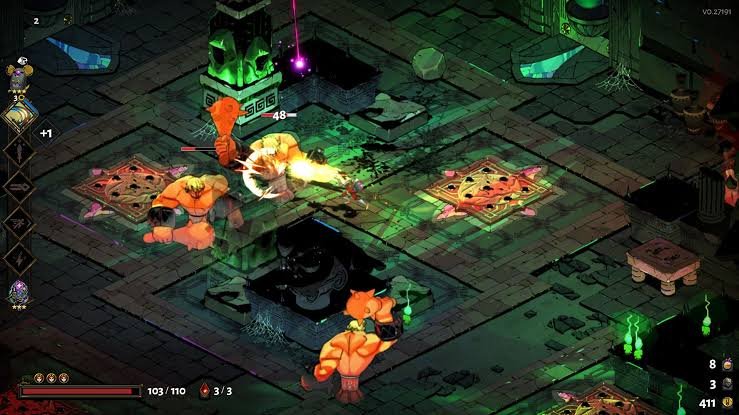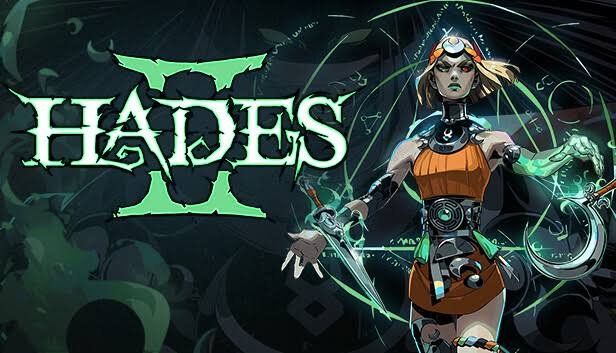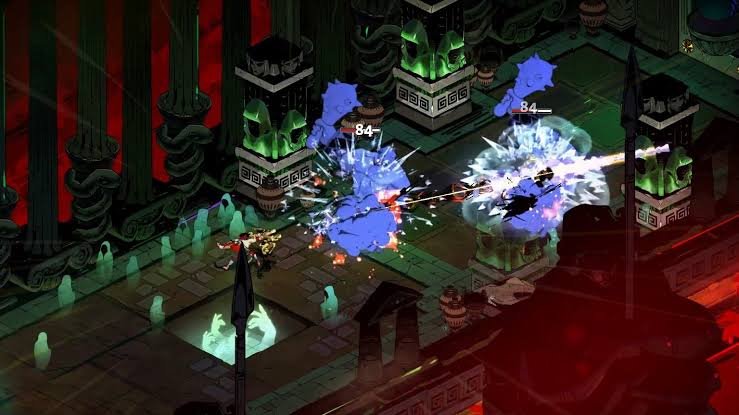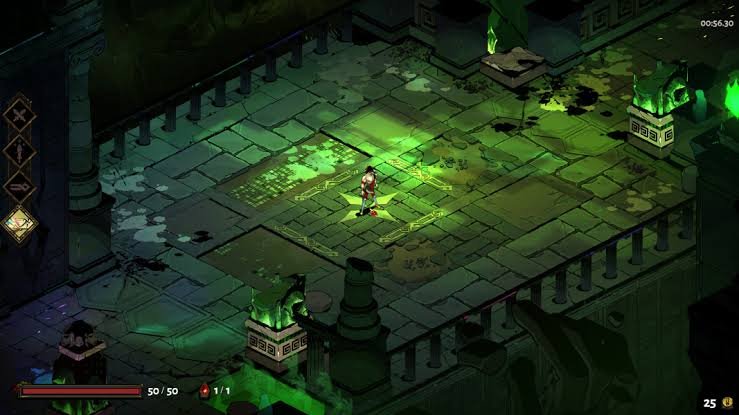Have you ever played Hades and wondered if it is a story game?
This is a common question among gamers who have played this critically acclaimed roguelike game developed by Supergiant Games.
Hades has been praised for its engaging gameplay, beautiful art style, and exceptional storytelling. But is Hades really a story game?
To answer this question, we must first define what a story game is. A story game is a type of video game that places a heavy emphasis on narrative and storytelling.
These games often have complex plots, well-developed characters, and multiple branching paths that allow players to shape the story as they progress.
Some examples of story games include The Last of Us, Life is Strange, and Detroit: Become Human.
Now, back to Hades. While Hades does have a strong narrative element, it is not necessarily a story game in the traditional sense.
The gameplay is just as important as the story, with players needing to master the game’s combat mechanics and upgrade their abilities to progress.
However, the story does play a crucial role in Hades, with each run revealing more about the game’s characters and world.
So while Hades may not be a story game in the strictest sense, it is still a game with a compelling narrative that is worth experiencing.
Exploring the Story Element in Hades
Hades is a game developed by Supergiant Games, known for their previous works such as Bastion, Transistor, and Pyre. It is a rogue-like dungeon delving action game where you play as Zagreus, the son of the titular Hades.
As you progress through the game, you will encounter various characters and engage in dialogue with them. The game’s story is told somewhat abstractly, but it is a significant element of the game.
The game’s story revolves around Zagreus’s quest to escape from the underworld. As you play through the game, you will uncover more about Zagreus’s past and his relationships with the other characters.
Each character has their own backstory and motivations, which are revealed through dialogue and interactions with Zagreus.
The game’s story is not linear, and the order in which you encounter the characters and their stories is randomized. This adds to the game’s replayability and encourages players to explore different paths and options.
The game’s story is also influenced by the player’s actions. The choices you make during the game can affect the outcome of the story and the relationships between the characters. This adds a layer of depth and immersion to the game’s storytelling.
Overall, while Hades is primarily a dungeon crawler, the game’s story is a significant element that adds depth and complexity to the game.
The non-linear, randomized nature of the story, combined with the player’s choices, makes it a unique and engaging experience.
Gameplay Mechanics in Hades

Hades is an action-packed game that combines hack-and-slash gameplay with roguelike mechanics.
As you progress through the game, you’ll encounter a variety of enemies and bosses, each with their own unique abilities and attack patterns. But what really sets Hades apart from other games is its gameplay mechanics.
Boons and Upgrades
One of the key mechanics in Hades is the ability to obtain Boons and upgrades. Boons are special abilities that are granted by the gods of Olympus, and they can be used to enhance your attacks, increase your health, or provide other benefits.
Upgrades, on the other hand, are permanent enhancements that can be purchased using resources that you collect throughout the game.
Mirror of Night
The Mirror of Night is another important gameplay mechanic in Hades. It allows you to upgrade your character’s abilities and stats, such as increasing your health or damage output. You can also unlock new abilities and perks by spending Darkness, a resource that is obtained by defeating enemies.
Infernal Gates and Troves
Infernal Gates and Troves are special areas that can be found throughout the game. Infernal Gates are portals that lead to challenging rooms filled with enemies, while Troves contain valuable resources and upgrades that can be used to enhance your character.
Pact of Punishment
The Pact of Punishment is a special gameplay mechanic that allows you to increase the difficulty of the game. By making a pact with the god of the dead, you can increase the health and damage of enemies, but also earn more rewards for defeating them.
Storytelling
While Hades is primarily a gameplay-focused game, it also features a rich and engaging story. As you progress through the game, you’ll encounter a variety of characters and learn more about the world of the Greek gods. The game also features multiple endings and branching story paths, which add to its replayability.
Overall, the gameplay mechanics in Hades are well-designed and engaging, providing a satisfying and challenging experience for players. Whether you’re a fan of action games, roguelikes, or Greek mythology, Hades is definitely worth checking out.
Narrative and Character Development in Hades
Hades is a story-driven game that features a unique approach to narrative and character development. Unlike other roguelike games, Hades has a persistent narrative that evolves with each death. The game features a rich cast of characters, each with their own unique personalities and backstories.
The narrative in Hades is expertly crafted, with a focus on aligning the player experience with the game’s story. The game’s writer, Greg Kasavin, has described his guiding light in writing Hades’ narrative as the goal of aligning the player experience of a roguelike game with its narrative. This means that the narrative is designed to be experienced in a way that complements the game’s mechanics, rather than detracting from them.
One of the ways that Hades achieves this is through the use of character development. As you progress through the game, you’ll encounter a variety of characters, each with their own unique personalities and motivations. These characters will offer you advice, provide you with upgrades, and even challenge you to battle. As you interact with them, you’ll learn more about their backstories and motivations, which will help you to better understand the world of Hades.
Another key element of Hades’ narrative is the use of dialogue. The game features a vast amount of dialogue, with characters constantly chatting and bantering with each other. This helps to create a sense of immersion, as you feel like you’re part of a living, breathing world. The dialogue is also expertly written, with each character having their own unique voice and personality.
Overall, the narrative and character development in Hades is top-notch. The game features a rich, immersive world that is brought to life through expertly crafted dialogue and character development. Whether you’re a fan of roguelike games or just looking for a great story-driven experience, Hades is definitely worth checking out.
Critical Reception and Player Feedback
Hades has been widely praised for its storytelling and narrative elements. Critics and players alike have lauded the game for its unique approach to storytelling, which integrates the narrative seamlessly with the gameplay.
According to a review by PC Gamer, “Hades is a roguelike action-RPG where story matters as much as combat.” The review goes on to praise the game’s “compelling cast of characters” and “intriguing plot twists.”
Similarly, Gamerant notes that Hades’ “contextual storytelling” has helped it earn numerous awards. The article explains that the game’s story is presented in a “somewhat ambiguous way” that “reveals new beats contextually to obviously well-received effect.”
Players have also been impressed with Hades’ storytelling. The game has received overwhelmingly positive reviews on Steam, with players praising its characters, dialogue, and plot. One player writes, “The writing in this game is phenomenal. Every character is unique and has their own story to tell.”
Overall, it’s clear that Hades is a story game that has been well-received by both critics and players. Its innovative approach to storytelling has helped it stand out in a crowded market, and its compelling characters and plot have kept players engaged from start to finish.
Conclusion
In conclusion, Hades is a game that expertly blends gameplay and storytelling to create an immersive experience. The game’s story is not only well-written but also well-paced, with each run revealing a little more about the world and its characters.
While the game’s roguelike elements may seem to detract from the story, they actually enhance it by providing a sense of urgency and risk. The fact that each run is different means that you never know what story beats you will encounter, adding to the sense of discovery.
The game’s true ending is also a testament to its storytelling prowess. To see it, you will need to beat Hades eight more times, following each defeat up with a visit to your mother to learn a bit more about her flight from the Underworld and why she never returned. This may seem like a lot of work, but the payoff is well worth it.
Overall, Hades is a game that is not only fun to play but also offers a rich and engaging story. Whether you are a fan of roguelikes or just enjoy a good story, Hades is definitely worth checking out.






